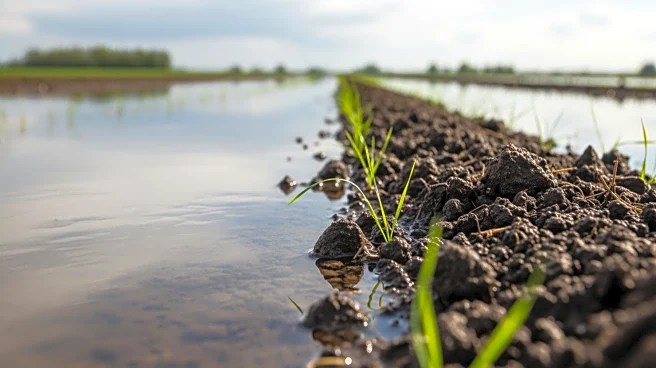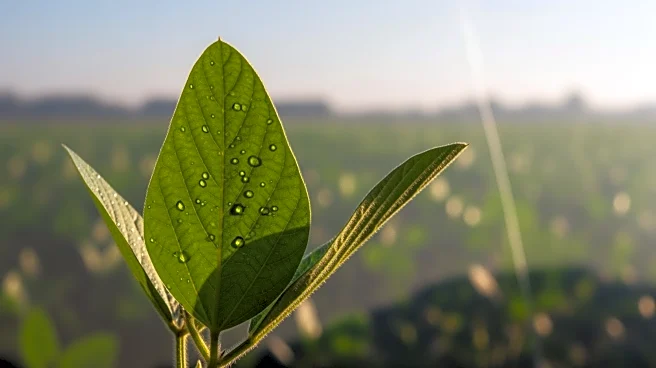What's Happening?
Farmers in Argentina's central Buenos Aires province are facing significant delays in soybean and corn planting due to extensive flooding. The floods have blocked access to fields, leaving many farmers stranded and unable to plant their crops. Argentina is
a major exporter of soybean oil and meal, as well as corn, making these delays particularly impactful on global grain markets. The Buenos Aires Grain Exchange has projected a decrease in soybean production to 48.5 million metric tons, while corn production is expected to increase to 58 million tons for the 2025/26 season. The flooding has affected approximately 1.5 million hectares of farmland, posing a high risk of unproductivity.
Why It's Important?
The flooding in Argentina's agricultural regions is significant due to the country's role as a leading exporter of soybean oil, meal, and corn. Delays in planting could lead to reduced yields and impact global supply chains, potentially driving up prices for these commodities. The situation highlights vulnerabilities in agricultural infrastructure, particularly in drainage systems and rural roads, which have been underfunded. This could have broader implications for international markets, affecting food prices and availability, especially in countries reliant on Argentine exports.
What's Next?
Farmers and agricultural associations in Argentina are likely to push for increased investment in infrastructure to mitigate future flooding risks. The Buenos Aires Grain Exchange and other stakeholders will continue to monitor the situation closely, adjusting production forecasts as necessary. International buyers may seek alternative sources for soybean and corn, potentially shifting demand to other exporting countries. The Argentine government may also face pressure to address infrastructure deficiencies to prevent similar disruptions in the future.
Beyond the Headlines
The flooding in Argentina underscores the challenges posed by climate change and extreme weather events on agriculture. It raises questions about the sustainability of current farming practices and the need for adaptive strategies to cope with changing environmental conditions. The situation may prompt discussions on the importance of investing in resilient infrastructure and the role of government policy in supporting agricultural sectors vulnerable to climate impacts.














